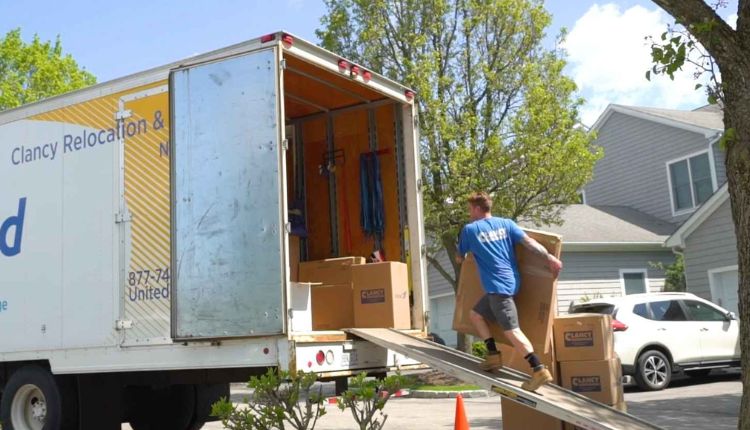Cross-country relocation is a significant undertaking that requires careful consideration and strategic planning. Whether you are moving for a new job, personal reasons, or simply seeking a change of scenery, being organized and prepared can make the process smoother and less stressful. Here are key steps to consider when embarking on your journey to a new home across the country.
Assess Your Needs and Priorities
Before diving into the logistics of moving, take some time to assess your needs and priorities. Reflect on why you are relocating and what you hope to achieve in your new location. This can involve a variety of factors, such as job opportunities, cost of living, climate, and quality of life. By clearly defining your priorities, you can create a plan that aligns with your goals and ensures a successful transition.
Create a Budget
One of the most critical components of any move is establishing a budget. Relocating across the country can be expensive, so it’s essential to account for all potential costs. Consider expenses such as hiring professional movers, renting a moving truck, purchasing packing supplies, and any temporary housing costs. Additionally, factor in the cost of living differences between your current location and your new one, as this can significantly impact your overall financial situation. Creating a detailed budget allows you to monitor your spending and avoid any unexpected financial surprises.
Choose the Right Time to Move
Timing can significantly influence the success of your relocation. Consider factors such as the job market, school schedules, and seasonal weather patterns when determining your moving date. For example, moving during the summer months may be more challenging due to increased demand for moving services and higher costs. On the other hand, relocating during the off-peak season can provide more flexibility and potential savings. Be mindful of local events or holidays that could affect your moving timeline, and try to plan your move during a period that minimizes disruption.
Research Your New Location
Thoroughly researching your new location is vital to ensure a smooth transition. Familiarize yourself with the neighborhoods, amenities, schools, and local culture. If possible, visit the area before your move to get a firsthand experience of what to expect. This can help you make informed decisions about where to live and what services you may need. Furthermore, connecting with local social media groups or forums can provide valuable insights and recommendations from residents who live in the area.
Organize Your Belongings
As you prepare for your move, take the opportunity to declutter and organize your belongings. This is an excellent time to assess what you truly need and what can be sold, donated, or discarded. Not only will this reduce the volume of items you need to pack and transport, but it can also help you start fresh in your new home. Create an inventory list of your belongings to keep track of everything during the packing and unpacking process. This will help you stay organized and ensure you don’t forget anything important.
Develop a Packing Strategy
Packing efficiently is essential for a successful cross-country relocation. Start by gathering packing supplies, including boxes, bubble wrap, packing tape, and markers. Label each box with its contents and the room it belongs to, which will make unpacking much easier. Consider packing room by room and prioritizing items you use less frequently. Additionally, protect fragile items with appropriate packing materials to prevent damage during transit. Depending on the distance and your timeline, you may choose to pack your items yourself or hire professional packers for added convenience.
Select the Right Moving Company
Choosing the right moving company can make a significant difference in the success of your relocation. Research and obtain quotes from multiple moving companies to compare prices and services. Look for companies that have positive reviews and ratings from previous customers. Ensure they are licensed and insured, as this provides additional protection in case of any issues during the move. If you’re planning a Raleigh NC long distance move, selecting a mover with proven experience in cross-country relocations to and from the area can give you added peace of mind. If you are considering a DIY approach, research truck rental companies and make reservations well in advance to secure the best rates and availability.
Establish a Timeline
Creating a detailed timeline can help you stay on track during the moving process. Break down tasks into manageable steps and set deadlines for each one. This can include tasks such as notifying your landlord, transferring utilities, changing your address, and setting up services in your new home. Having a timeline not only keeps you organized but also allows you to anticipate potential challenges and adjust your plans accordingly.
Prioritize Self-Care
Moving can be a stressful experience, so it’s essential to prioritize self-care throughout the process. Allow yourself time to relax and recharge, and don’t hesitate to ask for help from friends or family. Make sure to maintain a healthy routine, including exercise, proper nutrition, and adequate sleep. Taking care of your physical and mental well-being will help you better cope with the challenges of relocating and ultimately make the experience more enjoyable.
Embrace the Transition
Once you have completed your move, take the time to embrace your new environment. Explore your new neighborhood, meet your neighbors, and take advantage of local amenities and services. Give yourself permission to feel a range of emotions as you adjust to this significant life change. Remember that it’s normal to experience a period of adjustment, and being open to new experiences can help you settle in more comfortably.
In conclusion, a successful cross-country relocation requires thorough planning and strategic thinking. By assessing your needs, creating a budget, researching your new location, and staying organized throughout the process, you can ensure a smoother transition to your new home. Embrace the challenges as opportunities for growth, and soon you’ll find yourself thriving in your new surroundings.






